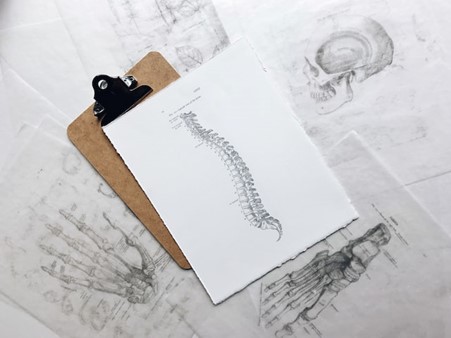Jack Miletic of Delray Beach is a spine physician and pain management specialist at the National Pain Institute in Orlando, Florida. He focuses on regenerative medicines, as well as traditional treatments, providing efficient, quality, and effective care to his patients. In the following article, Jack Miletic explains below how modern medicine supports the regeneration of these tissues.
Musculoskeletal conditions and diseases have undeniable impacts on people and are more common than some may realize. Whether due to an injury resulting in local inflammation or a genetic condition with systemic inflammation, musculoskeletal conditions often cause degeneration of tissues over time.
Regenerative medicine includes two therapeutic strategies: using living cells or cell-based therapies, and tissue engineering with biocompatible materials, scaffolds, and matrices. Traditionally, affected tissues are replaced or repaired with allografts, autografts, and xenograft material. Current medicine favors the regeneration of the damaged tissues.
About Musculoskeletal Conditions
Jack Miletic of Delray Beach says that the leading cause of physical disability in the world is musculoskeletal disease. These diseases may be caused gradually as tissues experience wear and tear throughout a person’s lifespan, or after an injury. Systemic inflammation as well as some genetic conditions may also lead to degeneration of tissues in the body.
Connective tissues like bones, cartilage, muscles, tendons, and ligaments can also be affected. Injuries cause inflammation, which eventually will lead to degeneration overtime. These affected tissues will present with debilitating pain, weakening, and loss of function. Because these disorders worsen over time, they most commonly affect the elderly, although they can occur in all age groups.
Benefits over Traditional Approaches
Traditional treatments including allografts, autografts, and xenografts have several drawbacks explains Jack Miletic. Among them are limited availability, limited reproducibility, disease transmission, donor scarcity, immune rejection, and sterilization-induced alteration in natural matrix properties.
Tissue regeneration, on the other hand, stimulates the body’s capacity to repair its own tissues; these tissues would otherwise be considered irreversibly damaged. This process leads to restoration of the function of the tissue. Because the new tissue is typically regenerated from the person’s own body, the risks associated with traditional treatments are not present.
How Regenerative Medicine Works
Cells are typically taken from a person’s own body explains Jack Miletic of Delray Beach. These may include blood, adipose, or bone marrow aspirate concentrate. A number of cell treatments derive cells from placental or amniotic tissues. This technology has been developing over the last 40-years and is still being tested in clinical trials.
The collected cells then call other cells to the affected area and begin to heal the affected tissues. Other components are then influenced to encourage healthy new cells to develop. An environment is created that favors the healthy development of cells and limits the inflammatory response of the initial injury.
Conditions That Can Be Treated
Jack Miletic explains that because this technology is relatively new, we do not yet know if there are more numerous conditions that can be treated with regenerative medicine. Currently, the research is limited in this growing field of study. However, the current conditions that may be treated with regenerative therapies right now include:
- Osteoarthritis and joint pain
- Tendonitis and tendinosis
- Degenerative disc disease of the spine
- Intervertebral disc tears
- Fractures that have not healed correctly with traditional treatment
- Cartilage injuries
- Muscle strain injuries
- Meniscus tears
- Labral tears in the hip and shoulder
- Ligament sprains and tears
- Partial tendon tears
The Conditions That are Being Studied
A few areas that are already being treated with regenerative medicine are still in clinical trials for other regenerative approaches.
Current clinical trial focus areas include:
- Carpal tunnel syndrome
- Cartilage repair and living cartilage transplant program
- Degenerative disk disease
- Gene therapy for osteoarthritis
- Ligament repair
- Orthopedic implant failure
- Pharmacotherapy for accelerated bone healing
- Pharmacotherapy for arthrofibrosis
- Rotator cuff regeneration
- Stem cell therapy for osteoarthritis
- Stem cell therapy for osteonecrosis of the hip

Conditions That are Not Treatable with Regenerative Medicine
As previously stated, regenerative medicine is a developing field of study. Organizations such as Mayo Clinic’s Center for Regenerative Biotherapeutics and Harvard Stem Cell Institute’s
Musculoskeletal Program are actively engaged in research on an ongoing basis.
This is good news! Jack Miletic of Delray Beach says that regenerative medicine is an up-and-coming field with unknown and very promising potential. As technology changes and advances, scientists are discovering new possibilities all the time.
This implies that the absence of evidence that regenerative medicine works for a particular condition does not mean that it does not work. It simply indicates that studies have not yet proven the effects for a specific condition, or that it has not yet been studied. Various conditions and diseases can manifest in the musculoskeletal system, which is why there are constant clinical trials and research performed in laboratories.
With time, Jack Miletic of Delray Beach says that increasingly effective regenerative therapies will be proven for a growing number of musculoskeletal conditions and will eventually be made available to people in both clinical trials and to the public.
In Summary
Regenerative medicine is a promising new frontier for musculoskeletal conditions. It is important for research to continue so that more people can experience relief from debilitating pain and mobility issues associated with these conditions.
